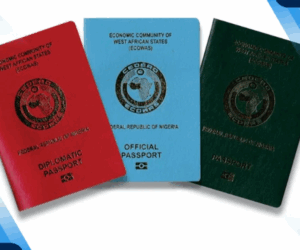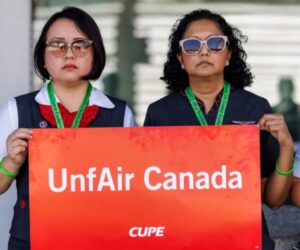As the tourism sector gets bashings from the private sector on lingering issues surrounding the recent implementation of the National Institute for Hospitality and Tourism (NIHOTOUR) Act 2022, there is fear that the Nigerian Tourism Development Authority (NTDA) will soon look into the NTDA Act 2022 for possible enforcement as being done by its sister parastatal.
However, the Ministry of Arts, Culture, Tourism and Creative Economy has been wading into the issues, amid other efforts to ensure cohesion needed to develop the industry collectively.
One of such efforts was the recent stakeholders meeting in Abuja, where Hannatu Musa Musawa, the minister, disclosed that her ministry will have a critical look at both Acts.
While that was her position papers, she noted that the recently concluded stakeholders meeting, called on her instance, was aimed at producing something truly beneficial for both the government and the private sector.
According to Musawa, while the critical look has become necessary, the ministry will not hesitate to take the Acts back to the National Assembly for further review, if her team and other parties are not able to resolve the lingering issues.
While the review is on, she noted that a wider stakeholder forum would be convened to present a final position on the two Acts.
Following the above, Aliyu Badaki, president, Federation of Tourism Associations of Nigeria(FTAN), has called on Musawa to champion a review and realignment of all available Acts in the industry to ensure that they are reworked to empower rather than stifle, promote efficiency and encourage Inclusiveness for the development of tourism in Nigeria.
Badaki, who oversees 23 private tourism sector associations under FTAN, commended the federal government for recognising the need to strengthen the operational and institutional framework of Tourism with hospitality development and practice as an integral part in Nigeria with the above two Acts .
According to him, the Acts were subjected to a thorough and careful review through wide consultations with the industry members and have identified the following areas of critical concern, duplication and potential conflicts both within the two government agencies and also with the organised private sector that may impact the operations and sustainable growth of the tourism and hospitality industry in Nigeria if left uncorrected immediately.
Badaki explained that the position paper provides details of the Federation’s comments, critical concerns and possible recommendations on both Acts with the aim of fostering clarity and ensuring harmonious collaboration between the public and private sectors in the effort at driving tourism development agenda in Nigeria under the President’s renewed hope agenda for Nigeria.
On the Nigerian Tourism Development Authority (NTDA) Act of 2022, Badaki said the Act empowers the authority to regulate tourism activities and also operate as a commercial entity as tour operators, convention and Bureau centre just as running consultancy and thereby competing directly with the private sector.
He said this needs to be addressed to avoid disruptive conflicts as Section 6(c) empowers NTDA to also train and regulate the consumer protection provision in section 5(c) which is certainly in conflict with the provisions of the authorities of the Federal Competition and Consumer protection commission (FCCPC) and needs review to avoid conflicts.
“The introduction of new levies of 1 percent of hotel room tax and others will amount to multiple taxation which is already a source of conflict between the Lagos State and Federal Government leading to the Supreme Court judgement of 2013 and still subsisting except when the Alliance program is strategically executed.
There are even clear duplications of roles NTDA and the State governments which has already been resolved by the supreme court judgement on residual and exclusive list declaration. This may have to be managed collaboratively to avoid another explosive conflict,” Badakli, president of the umbrella body of tourism private sector said.
He noted further that the implementation of Tourism policies are still viewed and unexpectedly pursued as a matter of coercion in the Country with consequences for non-compliance.
According to him, the modus-operandi for the Tourism Development Fund is clearly ambiguous and surely will need further clarity as to purposes, source, and benefits modality has to be addressed.
He recommended that the NTDA ACT 2022should focus attention on the big picture of policy formulation, destination marketing, Product Development, Investment Facilitation, and creating an encouraging enabling environment for doing Tourism business.
Badaki also recommended that training, capacity development and regulation of business and practice in any country and Nigeria inclusive has always been the functions of private sector activities and voluntary after the initial evidence of business registration, certification and evidence of attended school certification from Universities, Polytechnics and other training Institutions inclusive of National Institute of Hospitality and Tourism Studies(NIHOTOUR) in Nigeria and should be expunged immediately from the functions of NTDA except for the development of the staffs of the agency.
Others are that government organisations are not expected to engage in commercial activities of making glaring profit, therefore, all commercial activities designated as functions of NTDA should be removed immediately to avoid glaring conflicts except farmed through Private Party Partnership-PPP.
That the modalities for the funding and operations of the Tourism Development Fund must be revisited as the current provisions are vague and ambiguous while the benefits to Alliance Members and funding modalities must also be clearly spelt out through necessary consultations with the private sector.
He stated that the Board of the NTDA must have strong representation of the private sector operators inclusive of the standing committees on issues that concern the industry but not necessarily on their day to day official activities of the Authority.
He advised that FTAN as a strategic Partner, should be adequately and strategically involved in policy creation and implementation, while the formulation, implementation and execution of Tourism policies are required to be done through collaboration rather than coercion and without prejudice in view of the Supreme Court judgment of 2013.
On the National Institute for Hospitality and Tourism ACT 2022, FTAN President posited that the Constituents of FTAN responsible for training and capacity development were very grateful when the NIHOTOUR Act 2022 was enacted but they were quite surprised just as FTAN, on some of the provisions and domiciliation of the Act.
He said: “This constituted the major reasons for the engagement of the National Institute for Hospitality and Tourism Studies (NIHOTOUR) and private sector since the enactment of the law to no avail.
He outlined the major concerns on the NIHOTOUR Act 2022 to include: That another academic institution will register and re-certify Professionals who have passed through accredited academic programs of other higher academic Institutions such as Polytechnics and Universities accredited by National Universities Commission, and National Board for Technical Education as provided in the functions of NIHOTOUR is crude, an aberration and has never been heard of in civilised Countries and Societies as seen in Part 1, section 1(a-d) and part I, section I(a-i) respectively.
He revealed that there has been other Bill submitted to the Senate of the Federal Republic of Nigeria since 2000 with the same functions and which has passed through the second reading of the Senate with a follow up meeting with the Clerk of the Senate in October 2002 directing the harmonisation of interest with other regulating and Professional Bodies in the industry to attain the final reading and passage of the Senate.
He pointed out again that a body cannot be a training Institution as well as a regulatory and certification institution at the same time leading to the conflict of appropriating and re-probating itself at the same time.
According to him “This surely is conflicting; it cannot stand and must be reviewed immediately.
The Provision of the NIHOTOUR Act 2022 to make an academic institution to compulsorily register practitioners and far more qualified Professionals for re-certification is never a reasonable provision except meant for registered Professional Bodies in the industry to ensure that academic graduates are in sync with industry standards and fit- Part 5 section 1(a-i)Making punitive measures and criminalisation of default, a function of any academic institution is surely an overkill, an aberration and even the setting up of a Tribunal to try defaulters is a misnomer and against the Constitution and common sense-See part Vii sections 39,40,41,42,43,44 and Part Viii section 45, and Part IX section section 46 in totality”.
He noted that it is also an observable issue that there are conflicting provisions with the Standard Organisation of Nigeria, Nigerian Tourism Development Authority, National Universities Commission, National Board for Technical Education, Industry Professional Bodies and many other Agencies of government
FTAN recommended that In view of the above observed irregularities and ambiguities to stem the tide of conflicts and ensure peace, collaboration and development in the industry, it recommended that all conflicting areas of the supposed Act inclusive of registration, regulation, and certification of professionals and Practitioners must be reviewed and removed without further delay as this undermines the role of higher academic institutions and professional bodies in the industry.
He stressed that these are normally based on voluntary initiatives and career progression.
While citing that the Institute of Chartered Accountant of Nigeria, the Chartered Institute of Personnel Management, and the Nigerian Society of Engineers as critical examples, Badaki stated that the NIHOTOUR must remain strictly on its workforce/manpower development agenda to train vocational skills for the industry as Organisations such as CMD, ASCON, Law School, Institute of Legal Studies and NIPSS are critical examples to follow.
He said the Ministry should facilitate the enabling environment and necessary cooperation with the National Assembly to enact Acts for the necessary aspects of the business to carry out such functions of regulation, regularisation and certification on a voluntary basis for career progression.
Badaki noted that neither of the two bills (NTDA & NIHOTOUR) passed through the compulsory and mandatory public hearing before the final passage, but surprisingly they were packaged for the assent of the then President, adding that this they consider inappropriate.
FTAN President advised that the duplication identified in the two Acts should be identified and harmonised for meaningful operational efficiency complementarily, and not competitively Encourage regular structured engagements between government MDA’s and FTAN to harmonise positions and resolve conflicts whenever such arises.
Badaki stated that the ministry and the agencies must strive to empower rather than stifle the private sector.
He emphasised that Tourism industry holds immense potential to contribute significantly to the gross domestic product, job creation, and national branding.
Badaki pointed out that this potential can only be realised through a clear, coherent institutional framework, and cooperation of all.
He reaffirmed FTAN’s commitment to cooperate and work hand-in-hand with government and all other stakeholders in building a vibrant and globally competitive Nigerian Tourism industry.
In his presentation, Ovie Richard Esewhaye, director overseeing Office of the Director General, Nigerian Tourism Development Authority (NTDA), emphasised that their primary objective is to ensure that NIHOTOUR’s mandate is correctly applied to human capital development without usurping the functions of other agencies.
Esewhaye noted that the approach will prevent the creation of an unnecessary burden on the private sector, aligning the industry collective efforts with national economic goals.
He stated that the stakeholders must work in synergy to deliver tourism growth without being encumbered by bureaucracy, multiple levies, conflicting standards, or duplicated functions.
While calling for the reworking of NIHOTOUR Regulations 2025, Esewhaye stated that the proposed regulations should be redrafted to accurately reflect NIHOTOUR’s primary mandate of capacity development for personnel within the tourism industry, not regulatory oversight.
He called for a Joint Memorandum of Understanding (MOU) NTDA-NIHOTOUR MOU to be drafted to clearly define the functions of each agency and establish protocols for data and information sharing to enhance synergy.
He also called for the: “Establishment of a Technical Committee: A technical committee should be formed to articulate the specific regulatory functions of each agency. This committee would serve as an “industry explainer” to provide clarity for all stakeholders across the tourism value chain.Review of NIHOTOUR’s fees and charges: NTDA recommends an advisorial review of NIHOTOUR’s fees and charges, advocating for a downward revision to align with current industry realities and reduce the financial burden on practitioners”.
Esewhaye urged NIHOTOUR to immediately review its website and public communications to remove any wording that projects a misleading impression of its being a tourism regulator.









